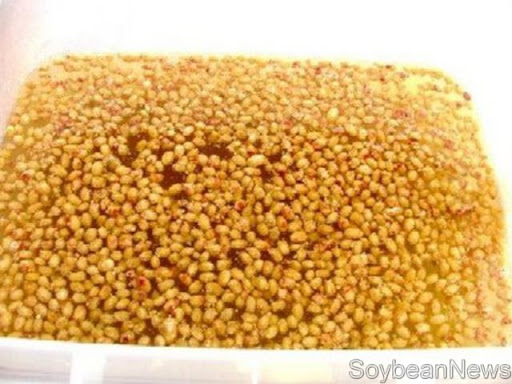Tuesday, February 22, 2011
Certified soybean will have level playing field
 BY April, the world will possibly be getting its first taste of certified soybean from South America and India an initiative taken by the Roundtable on Responsible Soy Association (RTRS).
BY April, the world will possibly be getting its first taste of certified soybean from South America and India an initiative taken by the Roundtable on Responsible Soy Association (RTRS).
The RTRS was founded in 2006, two years after the Roundtable on Sustainable Palm Oil (RSPO) initiative the pioneer in the certified sustainable palm oil (CSPO) for the world market.
While palm oil export growth may be hampered by claims from green NGOs on the destruction of rainforest and wild habitats, soybean also has to deal with a more complex issue pertaining to its genetically-modified (GM) status. It is said that 90% of soybean planted in the United States were genetically modified.
For many years, GM food crops like soybean, corn and rapeseed that use molecular biology techniques to enhance the desired traits such as pesticide and herbicide tolerant have generated criticisms from environmental NGOs in Western countries, religious organisations, consumer groups, scientists and some European governments.
Their concerns were mainly on the dangerous biotechnology effects on the GM food crops, especially to the environmental, human health risks and economic concerns.
GM soybean was in fact estimated to represent about 70% of all food products in US supermarkets, including cereals, breads, soymilk, pasta and most meat as animals were fed with the GM-soy feed.
According to RTRS, many more soybean producers in the United States and South America were expected to convert to producing RTRS-certified soy. About 224,000ha were involved in a field test and the expected soybean production is estimated at 650,000 tonnes.
As for RSPO-certified palm oil, its first batch was supplied to Europe in 2008. To date, the total production of RSPO-certified palm oil is about 3.61 million tonnes.
Despite the certification, the acceptance level for the sustainable palm oil had been slow among the consuming nations. From its initial premium of about US$40 to US$50 per tonne higher than the non-certified palm oil back in 2008, the CSPO premium now has gone down to a mere US$9 to US$10 per tonne.
So if one were to question whether it was a worthwhile effort by Malaysian and Indonesian oil palm plantation companies to have undergone strenuous and expensive RSPO process to get certified, some would disagree.
In 2010, of the total combined certified palm oil production of about 3.4 million tonnes by 22 plantation companies, only 60% was sold, according to RSPO data.
Malaysian palm oil plantation companies on the other hand contributed about 70% of the total RSPO-certified production. Many players wanted to see a higher take-up rate for the certified palm oil.
Disappointment with the RSPO had also resulted in Indonesia, the world's largest palm oil producer, developing its own standard the Indonesia Roundtable on Sustainable Palm Oil. This standard is made compulsory to all its plantation companies effective early this year.
(Source: http://biz.thestar.com.my/news/story.asp?file=/2011/2/22/business/8108129&sec=business)

This post was written by: HaMienHoang (admin)
Click on PayPal buttons below to donate money to HaMienHoang:
Follow HaMienHoang on Twitter














0 Responses to “Certified soybean will have level playing field”
Post a Comment